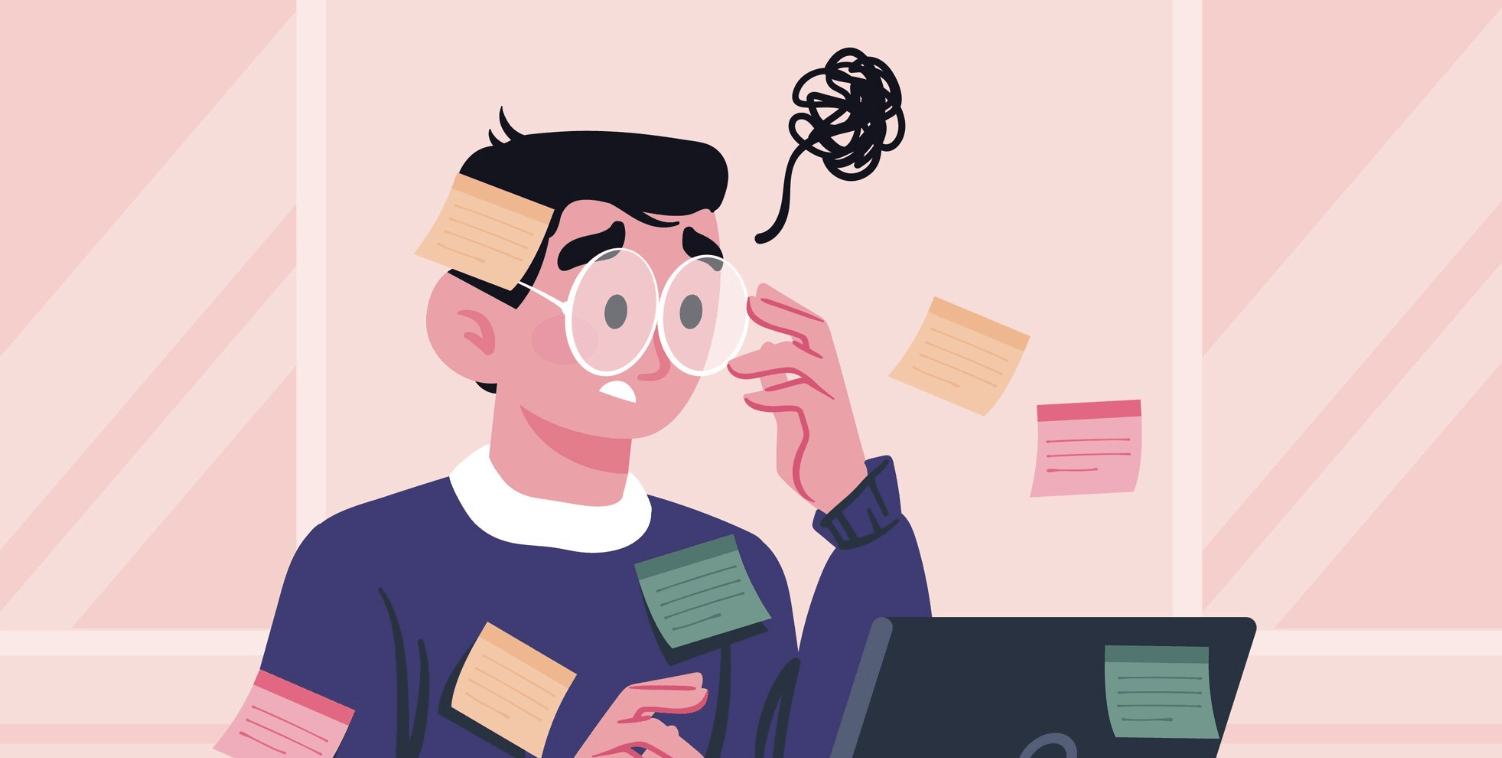Cognitive Health Tips for Preventing Brain Fog Long-Term

Brain fog can feel like a thick cloud over your mind. It slows thinking, makes focus difficult, and can make even simple decisions feel overwhelming.
While occasional mental fatigue is normal, chronic brain fog can indicate lifestyle or health issues that need attention. The good news is that you can take steps to maintain cognitive health and prevent brain fog from becoming a long-term problem.
Understanding Brain Fog
Brain fog is not a medical condition itself but a set of symptoms that reflect reduced cognitive performance. Common signs include:
- Difficulty concentrating
- Forgetfulness
- Slower processing speed
- Mental fatigue or low motivation
- Feeling detached or “spacey”
Factors contributing to brain fog include stress, poor sleep, poor nutrition, chronic illness, and aging. For a deeper understanding of how stress impacts cognition, see Understanding the Link Between Stress and Brain Fog.

1. Prioritize Sleep
Sleep is essential for memory consolidation, neural repair, and clearing toxins from the brain. Poor or inconsistent sleep contributes directly to cognitive fatigue.
- Maintain a consistent sleep schedule, even on weekends
- Keep your bedroom dark, quiet, and cool
- Limit screen time at least one hour before bed
- Consider a short relaxation or meditation routine before sleep
2. Nutrition for Long-Term Brain Health
Your brain needs specific nutrients to function optimally. Eating a balanced diet can reduce inflammation and support cognitive clarity.
| Nutrient / Food | Benefit for Cognition |
|---|---|
| Omega-3 fatty acids (salmon, walnuts, chia seeds) | Supports neural communication and reduces inflammation |
| Antioxidants (berries, spinach, kale) | Protects brain cells from oxidative stress |
| Protein (eggs, legumes, lean meats) | Provides amino acids for neurotransmitter production |
| Complex carbohydrates (oats, quinoa, sweet potatoes) | Provides steady energy for brain function |
| Hydration (water, herbal teas) | Prevents dehydration-related mental fatigue |
3. Stay Physically Active
Exercise supports brain health by increasing blood flow, improving oxygen delivery, and stimulating neurogenesis. Even moderate activity daily can make a difference.
- Walking, jogging, or cycling
- Strength training or bodyweight exercises
- Yoga or stretching routines to reduce stress and improve circulation
Combining physical activity with cognitive exercises, such as memory games, enhances long-term brain health. Moadly offers adaptive brain exercises to support this process—see Daily Brain Exercises That Improve Clarity and Recall.
4. Manage Stress Effectively
Chronic stress floods the brain with cortisol, impairing memory and focus. Reducing stress improves mental clarity and protects cognitive function over time.
- Practice mindfulness or meditation daily
- Engage in hobbies or creative activities to relax your mind
- Use journaling to process thoughts and reduce rumination
- Spend time in nature or take short breaks outdoors
For techniques to manage anxiety and prevent stress-related cognitive decline, see How to Rewire Your Brain After Chronic Brain Fog.

5. Build Cognitive Resilience Through Mental Exercises
Regular brain training helps maintain focus, memory, and reasoning skills. The brain adapts to challenges, and consistent mental exercise strengthens neural pathways.
- Memory drills: recalling sequences, words, or images
- Attention tasks: timed puzzles or concentration exercises
- Logic challenges: Sudoku, riddles, or problem-solving games
- Language exercises: learning new words, reading comprehension, or word associations
Apps like Moadly provide structured, adaptive exercises to keep your mind sharp. Start with How to Create a Routine to Prevent Brain Fog to integrate daily cognitive training effectively.
6. Maintain a Structured Daily Routine
A predictable routine reduces decision fatigue and helps the brain focus on cognitive tasks rather than constant planning. Consider including:
- Fixed wake-up and sleep times
- Scheduled work and relaxation blocks
- Regular exercise and meal times
- Short breaks to reset focus and prevent mental overload
Structured routines also lower anxiety and support long-term cognitive health. Learn more in Why Aging Brains Experience More Fog and What to Do About It.
7. Social Engagement and Lifelong Learning
Staying socially active and continuing to learn challenges multiple brain regions simultaneously:
- Join discussion groups or clubs
- Teach or mentor others
- Learn new skills, a language, or a musical instrument
Social and cognitive engagement improves attention, memory, and problem-solving, reducing long-term brain fog risk.
8. Monitor and Track Cognitive Health
Tracking progress can motivate and guide adjustments. Consider monitoring:
- Memory performance: recall speed and accuracy
- Focus duration: how long you can work without distraction
- Problem-solving efficiency
- Subjective clarity: daily energy and mental sharpness
Moadly apps automatically track cognitive exercises, giving feedback and adapting to your progress. Explore How to Rebuild Concentration After Brain Fog for tracking and improvement strategies.
9. Reduce Lifestyle Risks
Certain habits increase the risk of long-term cognitive fatigue:
- Excessive alcohol or caffeine intake
- Poor diet lacking nutrients for brain health
- Sedentary lifestyle
- Chronic stress without coping mechanisms
Addressing these risks supports sustained cognitive function.

10. Professional Support When Needed
If brain fog persists despite lifestyle changes, consult a healthcare professional. Underlying conditions like sleep disorders, hormonal imbalances, or nutrient deficiencies may contribute. Early intervention ensures long-term cognitive health.
Summary Table of Cognitive Health Strategies
| Strategy | Action Steps | Benefit |
|---|---|---|
| Sleep | Consistent schedule, dark room, bedtime routine | Memory consolidation, toxin clearance, mental clarity |
| Nutrition | Balanced meals, hydration, omega-3s, antioxidants | Supports brain function, reduces inflammation |
| Exercise | Daily walking, strength training, yoga | Improves blood flow, energy, neurogenesis |
| Stress Management | Mindfulness, journaling, hobbies, nature breaks | Reduces cortisol, enhances focus |
| Brain Training | Memory, logic, attention, and language exercises | Strengthens neural pathways, improves recall and focus |
| Structured Routine | Consistent wake/sleep times, scheduled work and breaks | Reduces decision fatigue, lowers anxiety, improves clarity |
| Social & Learning | Engage socially, learn new skills or languages | Enhances memory, attention, problem-solving |
Conclusion
Preventing long-term brain fog requires a combination of lifestyle habits, cognitive exercises, and consistent routines. Prioritize sleep, nutrition, movement, and stress management, while engaging socially and training your brain regularly.
Apps like Moadly support daily cognitive exercises and tracking, making it easier to maintain focus and mental clarity. Start with Daily Brain Exercises That Improve Clarity and Recall and incorporate structured routines with How to Create a Routine to Prevent Brain Fog for long-term benefits.
Consistency, awareness, and proactive strategies will help your mind stay sharp, focused, and resilient against brain fog for years to come.
